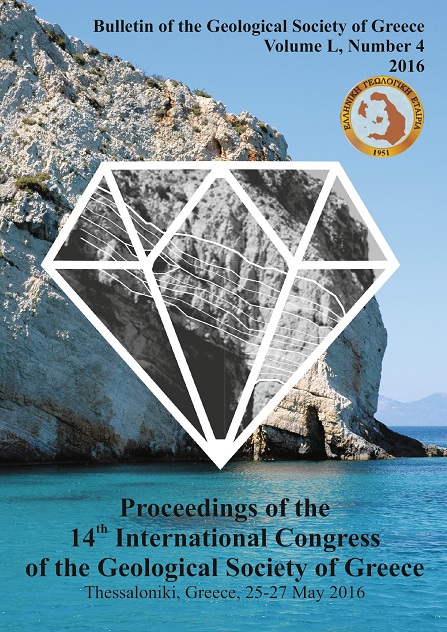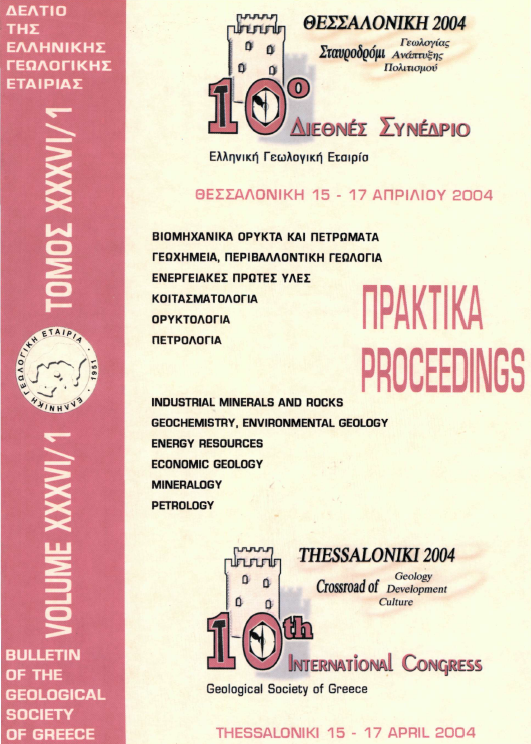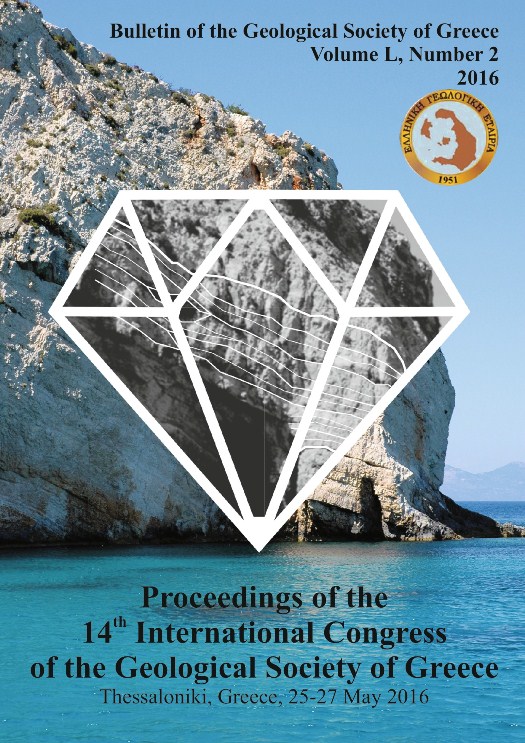PURIFICATION OF URBAN WASTEWATERS BY HELLENIC NATURAL ZEOLITE

Abstract
Treatment of urban wastewaters (pHinitial 8.2), with 6 g of Hellenic Natural Zeolite (HENAZE) of an grain-size < 1.5 mm, gave overflowed clear water of pH 7.5, free of odors and improved quality parameters by 87% for the suspended particles, 88% for the color, 91% for the P2O5 content, 93% for the chemical oxygen demand (COD) and 97% for the NH4 content. Compared to previous experiment, the decrease of the amount of HENAZE by 1.5 g (20%) resulted to the purification worsening only by 1-2%. The HENAZE comes from Ntrista stream of Petrota village of Trigono Municipality of Evros Prefecture, Northeastern Greece. HENAZE contains 89 wt.% HEU-type zeolite and exhibit an ammonia ion exchange capacity (sorption ability) of 226 meq/100g. The mineralogical composition and the unique physico-chemical properties, make the HENAZE suitable material for numerous environmental, industrial, agricultural and aquacultural applications, such as: Animal nutrition, soil amendment for agriculture, pH soil regulation, greenhouse and flowers substrates, durability and health improvement of lawn, purification of industrial and urban wastewaters, treatment of sewage sludge, odor control, fishery and fish breeding, gas purification and drying systems, oxygen enrichment of aquatic ecosystems, improvement of drinking water quality, constructed wetlands and wastewater treatment units. The treatment gave as precipitate an odorless and cohesive zeo-sewage sludge, suitable for safe deposition and also for the reclamation of agricultural soils. The zeo-sewage sludge, produced either from the urban wastewater treatment or from the mixing of HENAZE and sewage sludge, can be used for the reclamation of agricultural soils. The presence of HENAZE in the agricultural soils, increases the crops yield by 29 57% and improves the quality of agricultural products by 4-46%, reduces the use of fertilizers by 55-100%, reduces the usage of irrigation water by 33-67%, prevents the seepage of dangerous species into the water environment (e.g., NO3 - by 55-57%), protecting thus the quality of surface and underground waters. The usage of HENAZE in vivarium units and in the animal nutrition, increases the production and improves the quality of the relevant products.
Article Details
- How to Cite
-
Filippidis, A., Papastergios, G., Apostolidis, N., Filippidis, S., Paragios, I., & Sikalidis, C. (2010). PURIFICATION OF URBAN WASTEWATERS BY HELLENIC NATURAL ZEOLITE. Bulletin of the Geological Society of Greece, 43(5), 2597–2605. https://doi.org/10.12681/bgsg.11667
- Section
- Petrology and Mineralogy

This work is licensed under a Creative Commons Attribution-NonCommercial 4.0 International License.
Authors who publish with this journal agree to the following terms:
Authors retain copyright and grant the journal right of first publication with the work simultaneously licensed under a Creative Commons Attribution Non-Commercial License that allows others to share the work with an acknowledgement of the work's authorship and initial publication in this journal.
Authors are able to enter into separate, additional contractual arrangements for the non-exclusive distribution of the journal's published version of the work (e.g. post it to an institutional repository or publish it in a book), with an acknowledgement of its initial publication in this journal. Authors are permitted and encouraged to post their work online (preferably in institutional repositories or on their website) prior to and during the submission process, as it can lead to productive exchanges, as well as earlier and greater citation of published work.





